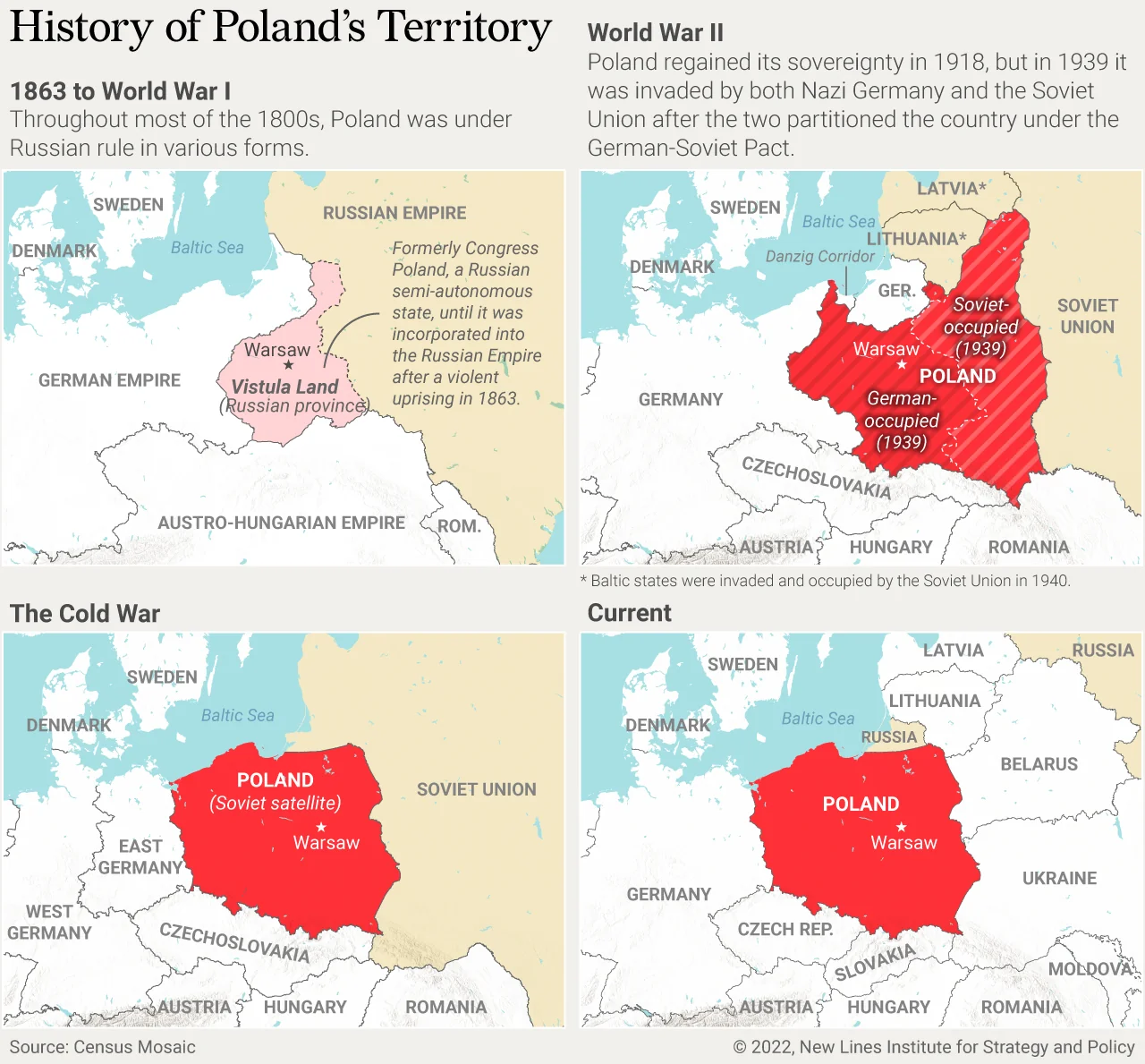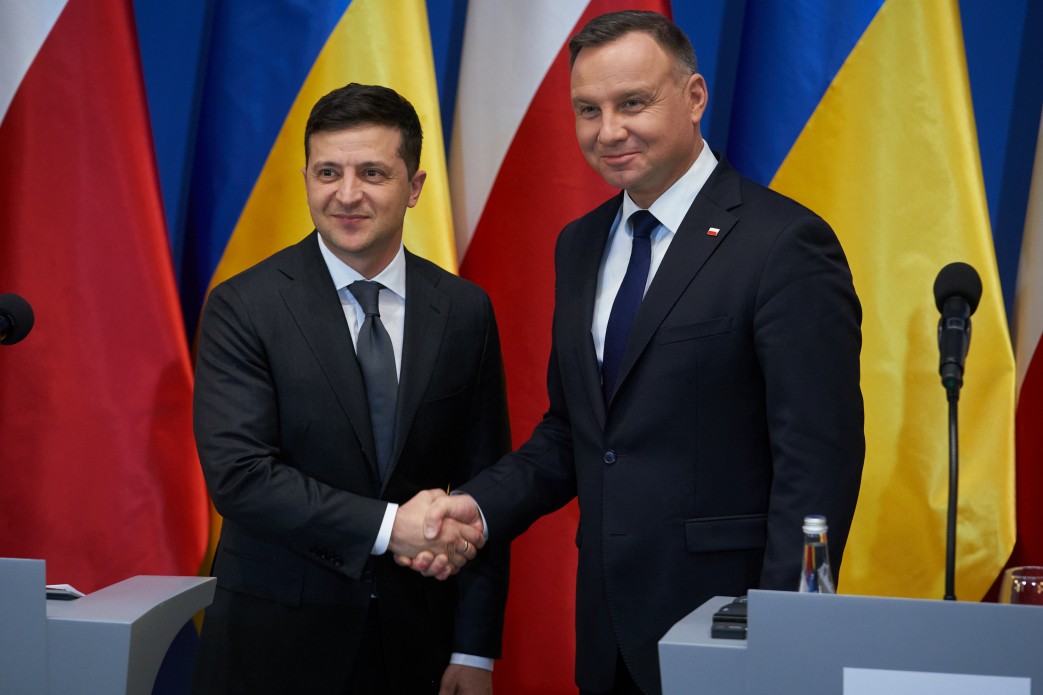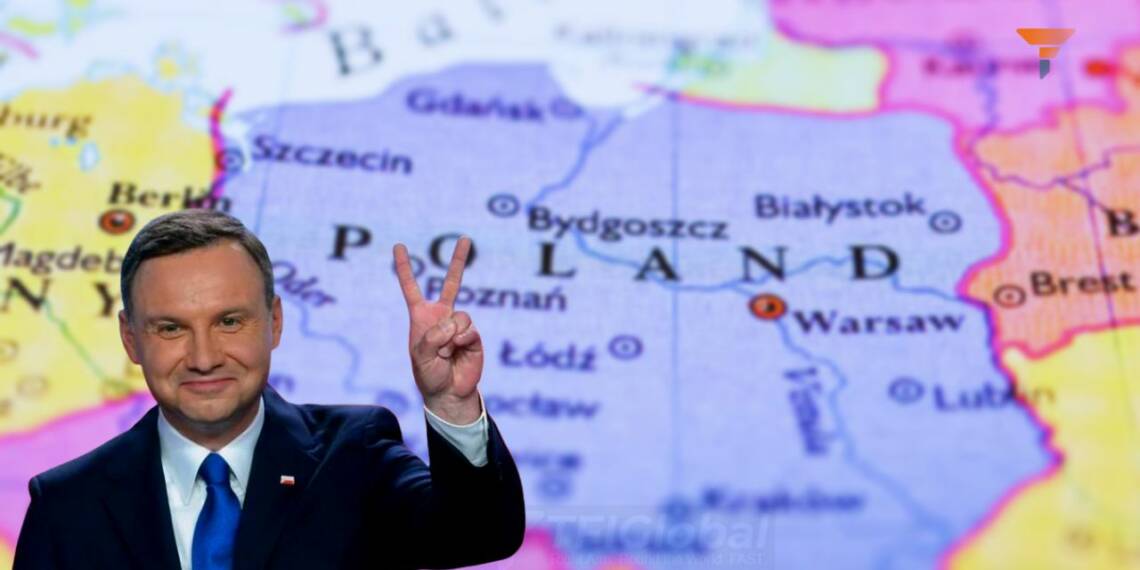Poland, the land of pierogi and vodka, has taken centre stage in Europe, much to the chagrin of its neighbours. Germany and France are both eyeing Poland warily, while the European Union is on the edge of its seat, fearing the country’s rise to power. But let’s be honest, when has Poland ever been one to sit quietly in the corner? In the face of such apprehension, it’s clear that Poland is no longer content to play second fiddle in the EU orchestra – they’re ready to take the lead and hit all the high notes.
This country is not a stranger to political conflicts.
Poland: A Short History
It played a significant role in the Cold War, caught in the crossfire of the conflicts between the West and the Soviet Union. From the end of World War II until the fall of the Soviet Union in 1991, the nation was governed by communists for over fifty years.

Country was viewed as a crucial chess piece in the geopolitical chessboard, for influence because of its strategically advantageous location on the border between the Soviet Union and Western Europe. In order to keep control over the nation, the Soviet Union saw Poland as a buffer between itself and the West. In the meantime, the West attempted to reduce Soviet influence in Poland because it considered Poland as a potential partner in the war against communism.
The end of the Cold War and the demise of the Soviet Union in 1991 resulted in substantial changes in Poland. The nation adopted democratic reforms and made the transition to a market economy. Poland has assumed a significant role on the international stage and is currently a member of the European Union and NATO. Poland, however, is still struggling with the effects of its communist past and can still feel the effects of the Cold War. And an urge to go back to where it all begun.
Poland’s geostrategic location
A key aspect of Poland’s history has been its geostrategic location. Poland has long been a hub of commercial and cultural exchange since it is located in the centre of Europe. The Baltic Sea borders the nation to the north, Ukraine and Belarus to the east, the Czech Republic and Slovakia to the south, and Germany to the west. Due to its geographic position, Poland is a major actor in European politics and a prized strategic asset for its neighbours.
Read More: US’ history of bombing pipelines: Now it’s the Nord Stream, back then it was Nicaragua
And the last few years stand testimony to this fact.
Covid-19 and its Aftermath
Poland’s economy was significantly impacted by the Covid-19 pandemic, with a 2.7% decline in GDP in 2020 itself. The epidemic had a particularly negative impact on the tourist, hospitality, and industrial sectors, which resulted in job losses and company closures.
The nearly €23 billion Covid rescue plan for Poland from the EU was supposed to aid in the nation’s post-pandemic economic recovery. It was a component of a larger EU initiative to aid member states in combating the pandemic. Finding fault with Poland’s judicial reforms, the EU delayed the approval of 23 billion euros ($26bn) in EU grants and 34 billion euros ($39bn) in cheap loans that were spared to help the country recover from Covid-19’s economic impacts. Till date, Poland is struggling to receive its Covid rescue funds from the EU which has let to a big dent on EU’s credibility as far as the EU is concerned.
But Poland was presented with the right opportunity to get even with the EU- the Russia-Ukraine War.
Poland and the onset of the Russia-Ukraine war
It readily participated in the War and poured its tanks and money into Ukraine in the first few months. Poland accepted the largest chunk of Ukrainian Refugees as well. It expected to receive more tanks from Germany and its Covid relief funds from the EU, in exchange of its war efforts but its efforts were lost on EU bigwigs like Germany, France and Italy. This led to a gradual withdrawal on Poland’s part, as it lost interest in the war. The lack of support from its EU mates left Poland feeling isolated.

Thus, in an act of defiance, Poland started demanding funds for hosting Ukrainian refugees. Polish President Andrzej Duda complained that Poland and Hungary had not received money from the EU to help the refugees. He said, “I have no doubt that such policy undermines the European unity, but we will anyway do everything in our power so that our guests from Ukraine feel here like at home.” By “this policy”, Duda was referring to the EU’s reluctance to pay for Ukrainian refugees housed in Poland.
And if that wasn’t enough, Poland started rounding up its citizens who dared to assist Ukraine in fighting the War. According to a Polish news outlet Rzeczpospolita, citing Poland’s penal code, Polish nationals currently serving in Ukraine’s International Legion of the Armed Forces and other divisions could face up to five years in prison when they return home.
Poles were among the mercenaries who joined the Ukrainians in their fight but unfortunately they will now be serving their next 5 years behind the bars once they return back to the country.
Poland’s Eastward March
Post the Covid Relief Fund and Ukraine Setbacks, Poland is increasingly fed up with the high-handed attitude of the Franco-German EU order and has taken it upon itself to create an East-Europe alliance. Poland’s aim is to challenge the dominance of France and Germany in the European Union’s. Poland is frustrated with the EU’s elitist behavior and their disregard for the concerns of lesser countries.
Talk about pulling wool over one’s eyes!
EU’s Dilemma, and Biden’s Angst
But now, European Union is scared. It should rightly be because Poland has started to build a mighty army of its own. Poland declared in public their ambitions of building the strongest military in Europe. Till now, it was France and Germany that remained the unrivalled ones when it comes to military might in Europe. So, Warsaw delivering such high hopes to rival France and Germany gave discomfort to the European super elites.
Poland has reportedly signed a multibillion-dollar contract with South Korea to import the latter’s home-grown light combat aircraft. SBS TV, citing a well-informed industry source, said, a representative of Korea Aerospace Industries Ltd. (KAI), the developer of the supersonic FA-50, left for Poland on Tuesday to sign a contract this week to export 48 of the aircraft for some US$3 billion.
According to the Anadolu Agency, Poland has extended its collaboration with the UK for its plans to extend the deployment of the Sky Sabre missile defence system in Poland. With this, Poland’s attempts to extend new defence ties outside the EU continue.
To top off the cake with a cherry, it is also inching closer to Russia now. Despite being embroiled in the Russia-Ukraine War, it had smartly never abandoned Russia’s side. While placating the European Union and Ukraine, Poland also made important deals with Russia. Last year, Poland inaugurated its new canal, Vistula Spit, which will allow ships to avoid Russian waters. Reportedly, the 1,300-metre-long canal cuts across the Vistula Spit, thereby linking the Baltic Sea with the Vistula Lagoon
Read More: Argentina’s Push to Uproot UK From Falkland Gains International support
European Union that prides itself on cohesion between its members is facing a potential setback as Poland has already started gyrating towards Russia, albeit indirectly.
Two hostile East European nations, with mighty armies on the Eastern front? Sounds like a dream.
It appears that Poland is planning to ditch its NATO mates, and this has left Joe Biden, feeling anxious. Losing Poland to Moscow camp will be a significant loss for the NATO. In an effort to convince Poland to stay, Biden has promised it a substantial sum of money and turning its army into the biggest in Europe. But promises made in haste are promises seldom kept. The situation is tense, and the NATO is divided on the best course of action to retain Poland.







